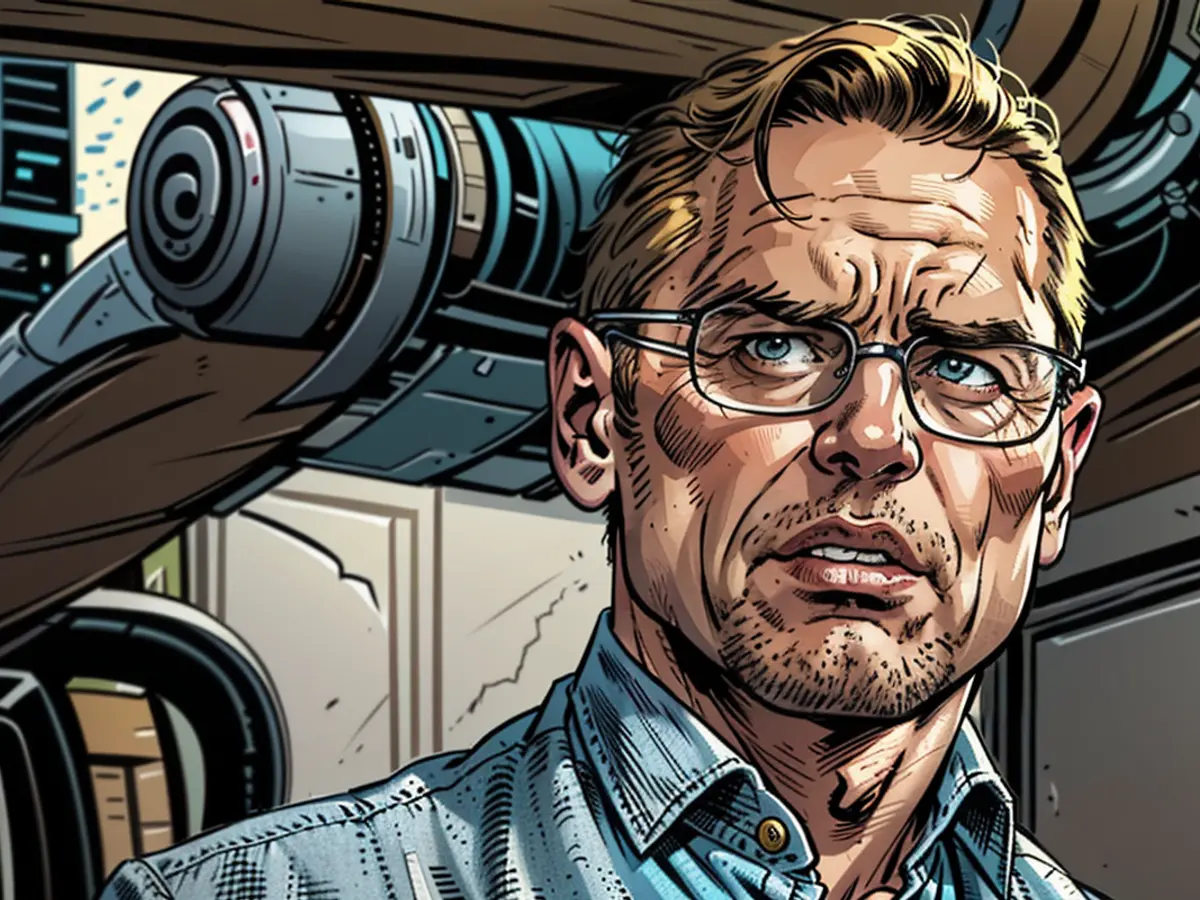The Authority has been tasked with drafting a proposal for a legislation aimed at safeguarding laborers from dangers associated with being exposed to ionizing radiation.
Currently, Thuringia is stuck in a standstill. If the CDU and BSW refuse to negotiate with the AfD, their options are limited. CDU leader Voigt's plan for an alliance with the SPD and BSW falls short by a single vote in the state parliament. This missing vote could potentially come from the Left, possibly from Bodo Ramelow.
Surprisingly, the Left's most prominent figure, Bodo Ramelow, is being discussed as a potential kingmaker for a CDU-led government in Thuringia. In the days following the state election, which resulted in intricate majorities and an AfD victory, speculation is running rampant about Ramelow's potential role in forming a majority.
A coalition with the SPD and the alliance of Sahra Wagenknecht, which Voigt is pursuing, garners 44 votes in the Erfurt state parliament - but with 88 seats, that's at least one vote short.
"It's all hogwash"
Rumors are swirling in the Thuringian state parliament and party board meetings that Ramelow could abandon the Left faction in his "civic responsibility" and serve as a majority maker for Voigt's fragile alliance. Or the 68-year-old could abstain as a directly elected MP of the Left.
"I'm just repeating the silly notions that are circulating," some state politicians admit privately, eagerly spreading the rumors. "It's all hogwash, it's all garbage," Ramelow asserts, visibly angered, in Erfurt. "It's impudent to spread rumors without any substance. I forbid any speculation."
He will neither leave his party nor faction, nor will he personally abstain or take other actions to secure majorities, Ramelow clarified. "There will be no one else from the Left faction changing either," he added. "I'm not a private individual nor a one-man show. And I will never violate parliamentary rules."
"I will do everything to achieve a majority government"
However, he also delivers cryptic statements during these turbulent days in Thuringia. When asked by "Der Spiegel" about the missing vote for the potential alliance of the rival parties CDU, BSW, and SPD, he said: "One vote is right before your eyes."
He repeatedly emphasizes that he cannot endorse a minority government after his experience with the red-red-green minority coalition. The red-red-green alliance was ousted on Sunday.
Moreover, Ramelow has offered support for government formation on election night - "if desired by the other parties." "I will do everything to achieve a majority government," he stated, or "I'm open to solutions and do not participate in exclusionism."
Whether this could also mean tolerating a prospective three-party coalition under CDU leadership remains to be seen. Or is he talking about a majority government with the participation of his Left, which has 12 seats in the state parliament? Thuringia's Left leader Ulrike Grande-Rohtig at least calls for a review of the CDU's incompatibility resolution - which currently applies to both the AfD and the Left.
Ramelow is anticipating a call from the CDU.
"I don't have to speculate," says Ramelow, pointing out that it's up to Voigt to initiate talks with the democratic parties. The CDU, with the most seats (23), has the mandate to form the government. His Left Party is open to negotiations, "if Mr. Voigt calls."
The 47-year-old Voigt plans to initially speak with BSW and SPD, and probably only with Ramelow about the 2025 budget draft. Former Thuringia CDU Minister-President Christine Lieberknecht at least advocates for talks with the Left. "You can't ignore the Left, even just for tolerance. That's math - nothing else," she told the Redaktionsnetzwerk Deutschland (RND).
Moderator Role in Coalition Poker
Political scientist Torsten Oppelland considers a coalition of CDU, BSW, and SPD - a unique model in Germany - plausible. "On a state political level, the political differences between the CDU and the Wagenknecht party are not that significant," he asserts.
In the end, the situation is reminiscent of Ramelow's 2020 coalition - his alliance with SPD and Greens also lacked a majority. There was at least a one-year stability pact with the CDU. Tolerating a CDU-led government from the Left is not a prerequisite. "But in the end, that's what it will come down to," believes Oppelland.
And what role does Ramelow see for himself? He will remain Minister-President until a new government is in place, likely by late September after the constituent session of the Landtag. Different from Voigt and AfD hardliner Björn Höcke, Ramelow won his state constituency directly and will, according to his own statements, exercise his mandate as an MP.
In the coalition poker, experienced politician, former trade union official, and railway arbitrator Ramelow can envision a mediating role for himself. "Yes, if it's desired. I can try to bring the parties to the table," says Ramelow. The first challenge is the election of a Landtag President. The right to propose a candidate belongs to the strongest party - the AfD.
The BSW, being a potential partner for the CDU in Thuringia, could play a significant role in the coalition negotiations. Despite the CDU leader Voigt's plan falling short by a single vote, the possibility of BSW considering joining a CDU-led government remains a topic of discussion.
In the midst of these negotiations, Bodo Ramelow, the leader of the Left faction, categorically denounces the spreading of rumors about his potential role in securing majorities, stating, "It's all hogwash, it's all garbage."








